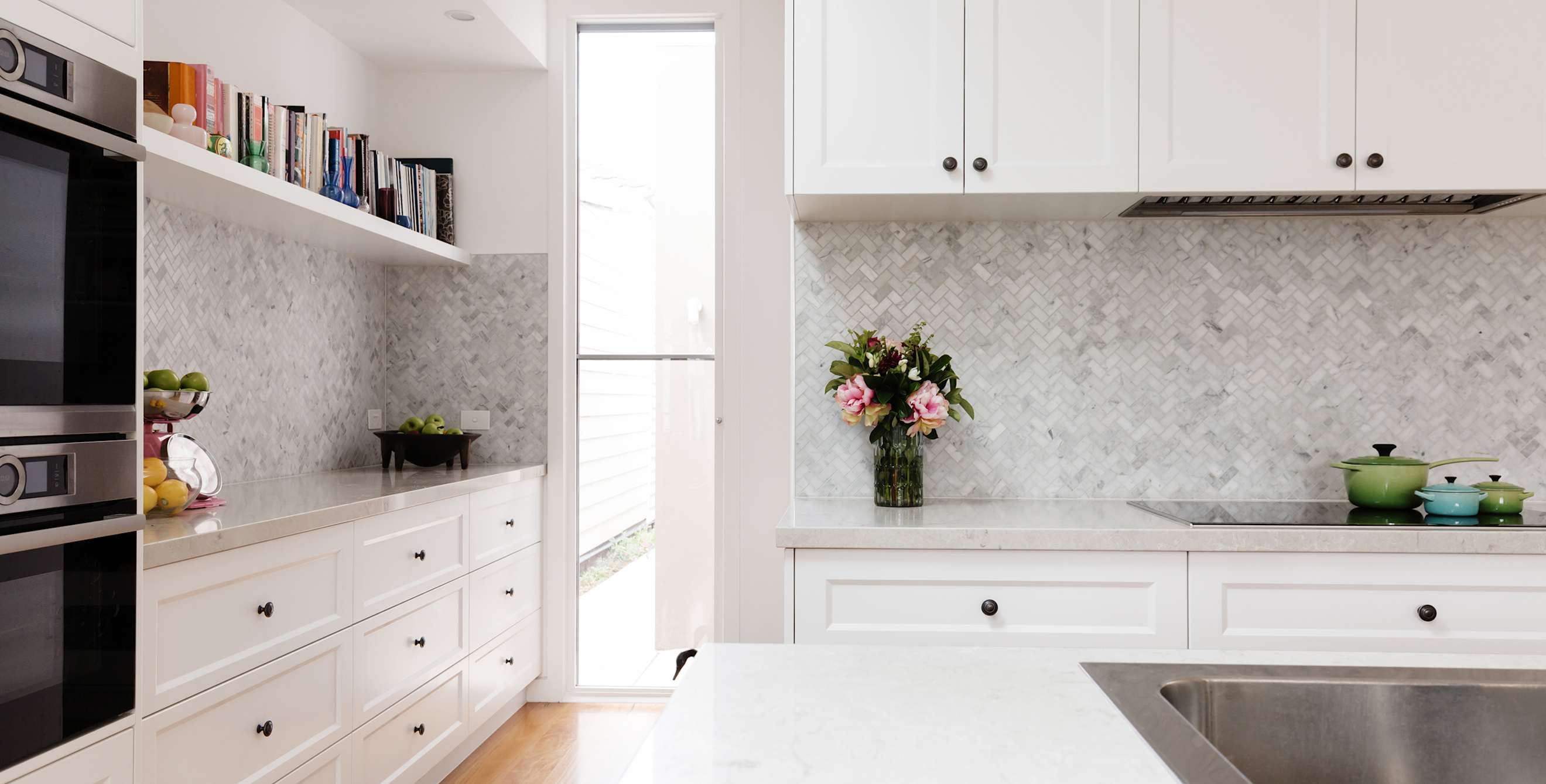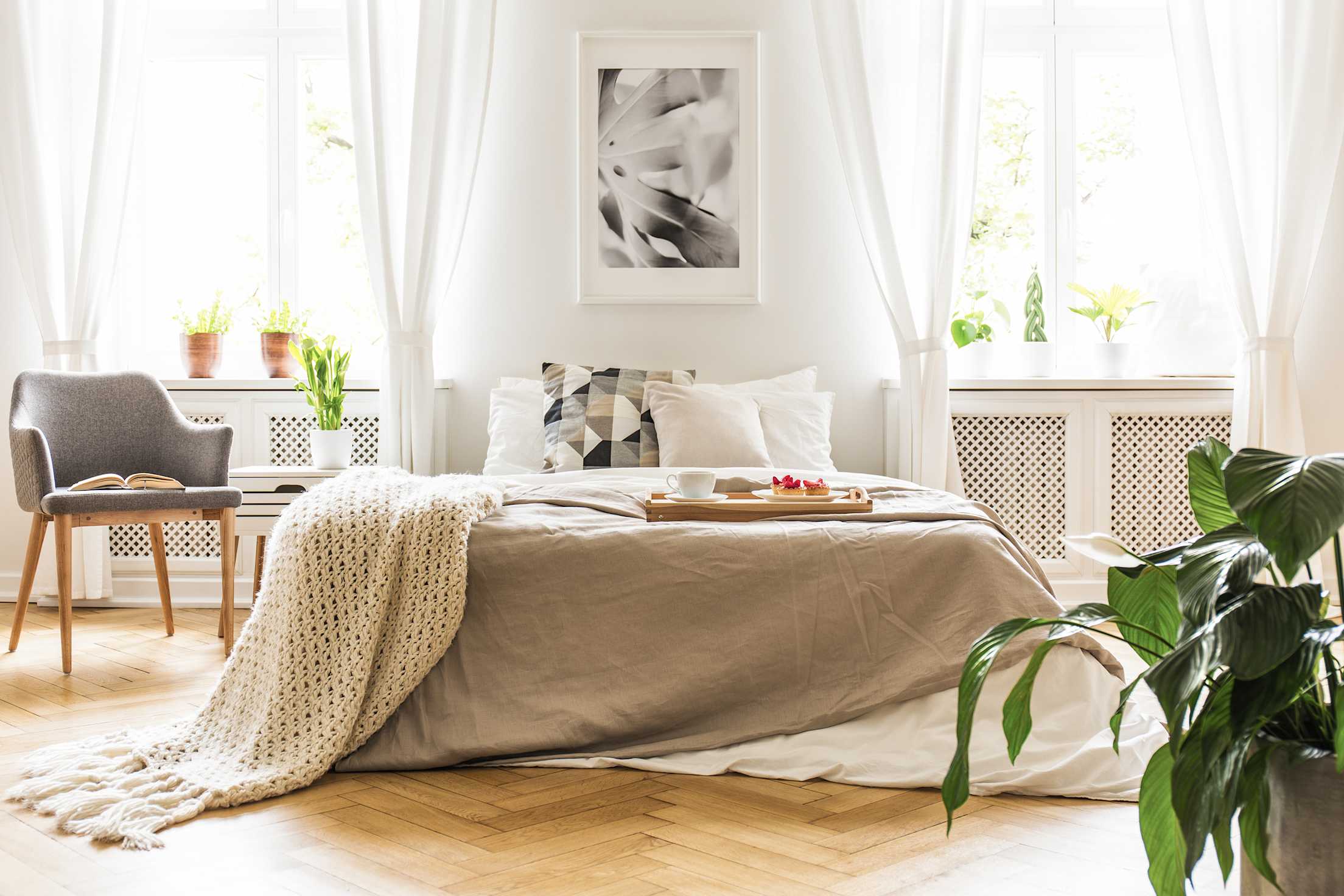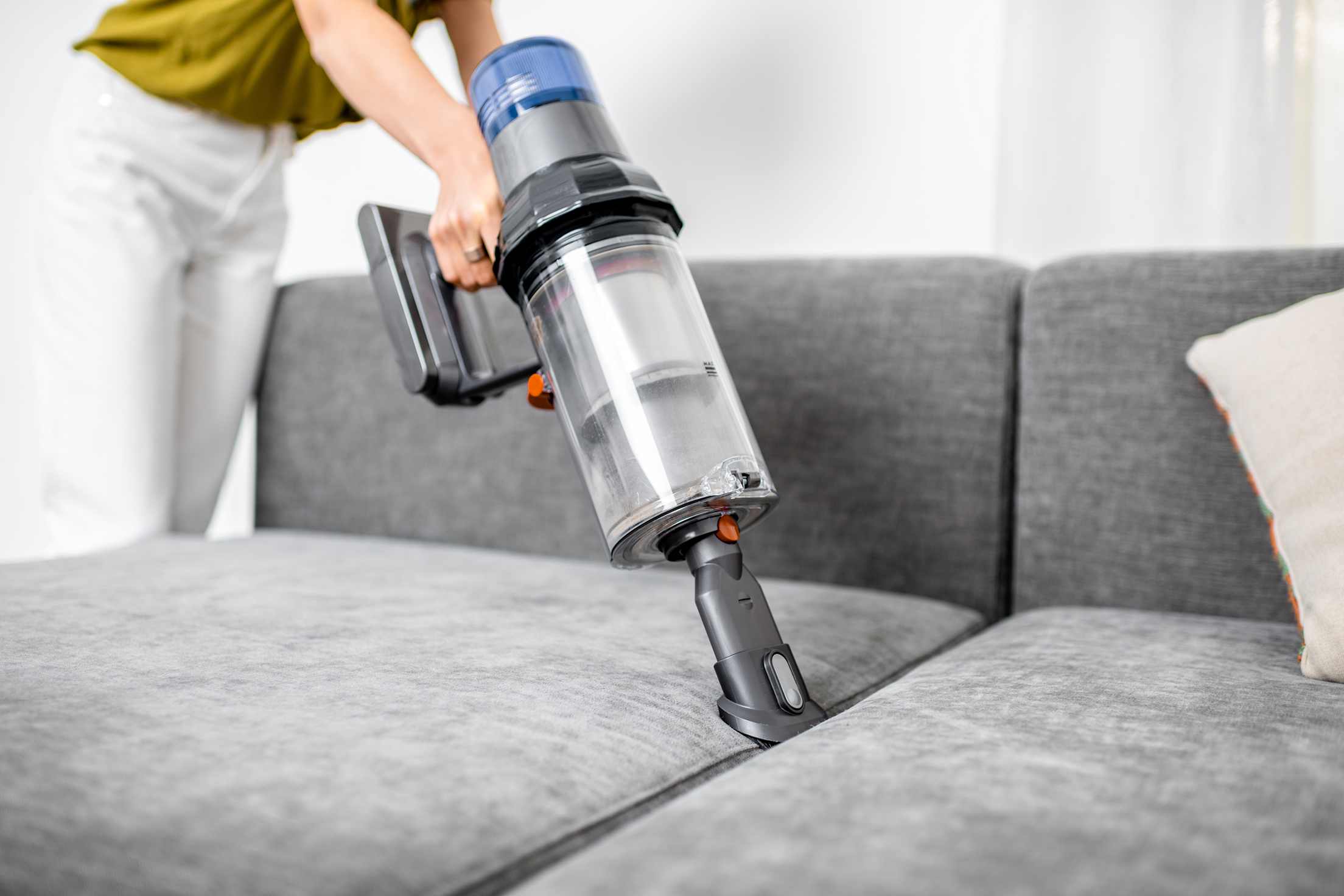
How to Get Rid of Common Household Odors
Say goodbye to unpleasant smells with these simple strategies.

Ever open up your refrigerator and cringe at the smell that wafts out? Or maybe it’s a musty laundry room or stale living room that makes you recoil. Some spots in the home are prone to smelling less than lovely. Fortunately, with a targeted approach and preventative measures—along with some help from everyday products—you can get rid of unwelcome odors. This room-by-room guide will help you vanquish commonplace household smells.
Kitchen
Between the perils of rotting food and the ever-present trash can, it’s no surprise that the kitchen is a prime spot for foul smells. Here’s how to make them vanish.
Cooking Smells
Before you turn on the stove or the oven, flip the switch on the range hood or crack open the window to reduce strong food scents, says Melissa Homer, chief cleaning officer of MaidPro. “If possible, point a portable fan past the stove to the window to drive air out of the room before it disperses throughout the house,” she says.
Dishwasher
To cut down on dank mold smells, keep the door to your dishwasher open for a few hours after running it, recommends Homer.
Non-mold odors are likely due to trapped food, says Elena Ledoux, CEO of Las Vegas-based Superb Maids. Her recommendation: “Try to locate the source of the problem and clean out filters, as well as thoroughly wash inside the machine.” If that doesn’t do the trick, it’s time for pros. Have your service company check the drainage and hoses of the machine, she suggests.

Refrigerator and Freezer
“Refrigerators usually smell bad due to spoiled or spilled food,” Ledoux says. The solution is simple: Take everything out and trash anything expired along with stinky leftovers and produce that's past its prime. “Then pull out all the shelves and bins and thoroughly wash and dry them,” Ledoux says. Finally, put an open container of odor-absorbing baking soda inside, and use food before it spoils, says Homer.
Trash Bins
A lid goes a long way to containing stench, Homer says. Taking out your trash once a day is another simple way to avoid lingering bad odors. If the bag breaks or something stinky lingers in the bin, wash it out with a disinfectant, Ledoux suggests.
Keeping food out of the bin will also keep things smelling fresh. Compost your food scraps instead, and take potent items straight to the bin outside.
Garbage Disposal
There are a few old-fashioned strategies that’ll help keep your garbage disposal smelling fresh, Ledoux says. You can cut up lemons and pass them through the garbage disposal. Or, pour a fizzy mixture of one cup each of vinegar and baking soda down the drain.
“For persistent drain odors, enzyme based drain cleaners like Green Gobbler will eat up the rotting buildup in the pipes causing the foul odors,” says Homer.

Bathroom and Laundry Room
The dampness in these spaces can easily lead to mold and mildew, which have a persistent odor to them. Here’s what helps.
- Prioritize ventilation. Aim to keep the air flowing—run the bathroom fan after showers, let the shower curtain dry completely before pushing it to the side, and leave the door to the washing machine open after you run a load.
- Don’t neglect the space. Frequently and thoroughly cleaning the bathroom should keep odors under control, Ledoux says. “For eco-friendly bathroom cleaning, I would consider a steam machine—it works well to get rid of the grime and bad odors,” Ledoux recommends.
- Bring on baking soda. Add a handful of baking soda to the wash for stinky gym clothes or towels, Ledoux recommends.

Living Spaces
Smells—like cigarette smoke—can cling to carpets and walls, making the air in living spaces feel stale. Here’s what to do.
Smoke from Cigarettes or Vapes
Airing out a room helps get rid of some of the stench left from cigarette smoke, so start by opening windows. If it feels like the smell has permeated the walls, combine hot water and dishwashing liquid and apply it to the wall with a damp mop, Ledoux suggests. Do a test patch first to make sure it won’t damage the paint.
You can also try sprinkling baking soda onto upholstery and carpet, and vacuuming it up after letting it sit for awhile, per the International Association of Certified Home Inspectors (InterNACHI). Or put out bowls full of charcoal or white vinegar to absorb smells, according to InterNachi.
Carpeting
Along with using baking soda or carpet powders, Homer recommends a professional deep clean with a steam machine every six months to remove any ground-in grime and scents.
Smart Tip: Does it smell worse after you vacuum? You might need to give the machine a little TLC. “Unplug and wipe out all accessible areas of the machine inside and out with a microfiber towel lightly dampened with a disinfecting all purpose cleaner,” Homer recommends. Pull a jump rope with a rag tied on the end through the hose to get rid of any gunk inside, she says. And don’t forget to change the bag regularly.

Pet smells
Stay ahead of unwanted aromas by scooping the litter box daily, changing out the litter completely at least once a week, and placing baking soda at the bottom of the box.
If pets have an accident on the carpeting or upholstery, you’ll likely need to enlist some products for help. Homer recommends Odoban and Rocco & Roxie, while Ledoux likes Stain Fu, which is natural and non-toxic and eliminates both stains and odors.
Phthalates and VOCs
To get rid of these indoor pollutants found in furnishings and building material, ventilate your space, Homer says. “The only thing that clears out VOCs is fresh air,” she says—a HEPA filter in an air purifier cannot capture these gaseous pollutants.

The Best Ways to Prevent Bad Odors
“Completely managing foul odors can often require multiple steps,” Homer notes. For a fresh-smelling home, prevention is the best tactic. “My favorite tip for making the home smell fresh is to open all doors and windows widely and let the fresh air in,” says Ledoux.
Along with ventilation, cleaning your space is also key. Pay particular attention to carpets and upholstery, where bacteria can flourish, Homer advises.
“In terms of preventing the bad smells, I look at it as not allowing oils, dust, and grime to accumulate,” Ledoux says—that means not letting laundry pile up, changing sheets and towels out frequently, wiping down surfaces, vacuuming, and doing all the other tasks required for a spic-and-span home.